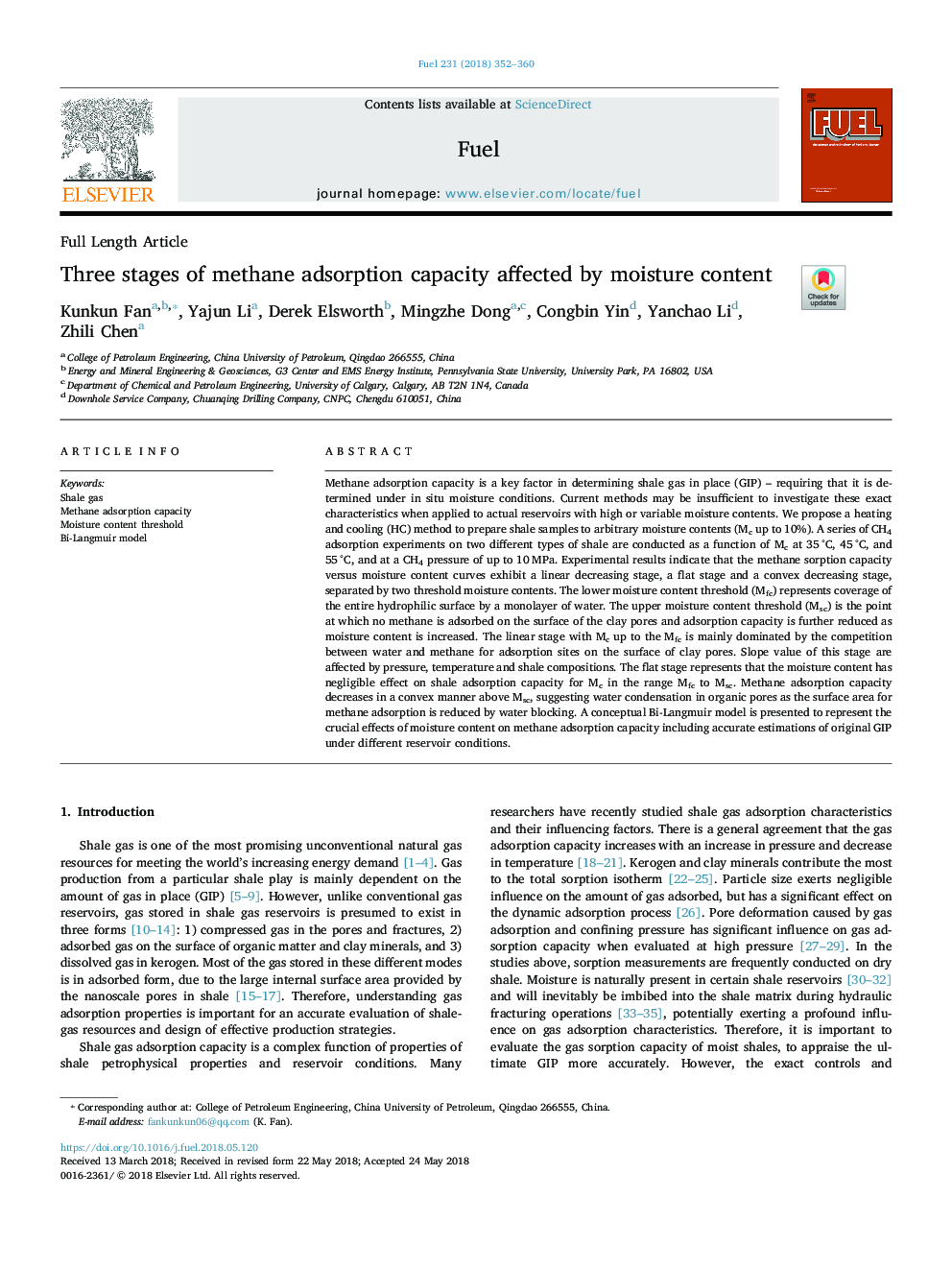| Article ID | Journal | Published Year | Pages | File Type |
|---|---|---|---|---|
| 6630560 | Fuel | 2018 | 9 Pages |
Abstract
Methane adsorption capacity is a key factor in determining shale gas in place (GIP) - requiring that it is determined under in situ moisture conditions. Current methods may be insufficient to investigate these exact characteristics when applied to actual reservoirs with high or variable moisture contents. We propose a heating and cooling (HC) method to prepare shale samples to arbitrary moisture contents (Mc up to 10%). A series of CH4 adsorption experiments on two different types of shale are conducted as a function of Mc at 35â¯Â°C, 45â¯Â°C, and 55â¯Â°C, and at a CH4 pressure of up to 10â¯MPa. Experimental results indicate that the methane sorption capacity versus moisture content curves exhibit a linear decreasing stage, a flat stage and a convex decreasing stage, separated by two threshold moisture contents. The lower moisture content threshold (Mfc) represents coverage of the entire hydrophilic surface by a monolayer of water. The upper moisture content threshold (Msc) is the point at which no methane is adsorbed on the surface of the clay pores and adsorption capacity is further reduced as moisture content is increased. The linear stage with Mc up to the Mfc is mainly dominated by the competition between water and methane for adsorption sites on the surface of clay pores. Slope value of this stage are affected by pressure, temperature and shale compositions. The flat stage represents that the moisture content has negligible effect on shale adsorption capacity for Mc in the range Mfc to Msc. Methane adsorption capacity decreases in a convex manner above Msc, suggesting water condensation in organic pores as the surface area for methane adsorption is reduced by water blocking. A conceptual Bi-Langmuir model is presented to represent the crucial effects of moisture content on methane adsorption capacity including accurate estimations of original GIP under different reservoir conditions.
Keywords
Related Topics
Physical Sciences and Engineering
Chemical Engineering
Chemical Engineering (General)
Authors
Kunkun Fan, Yajun Li, Derek Elsworth, Mingzhe Dong, Congbin Yin, Yanchao Li, Zhili Chen,
